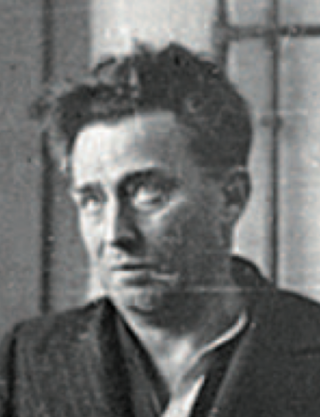Dr. Richard Böhm

Personalia
Born:
Died:
Profession:
Persecution:
Imprisonment 12.03.1938 - 02.04.1938,
Dachau concentration camp 02.041938 - 22.09.1942,
Released 31.05.1938,
Gau ban 1942
KZ Number:
Honors:
Grand Decoration of Honor for Services to the Republic of Austria
Curriculum Vitae
Richard Böhm was born in Vienna as the legitimate son of Johann Böhm, a court councillor, and Marie, née Reinisch. The family is Old Catholic. After elementary school, he attended grammar school. After graduating from high school, he enrolled in law at the University of Vienna and took piano lessons at the Vienna Conservatory. In 1914, he graduated with a doctorate in law and in 1915 enlisted as a one-year volunteer in the infantry regiment 14 'Hessen' in the First World War.
Immediately after the defeat and the dismantling of the Austro-Hungarian dual monarchy, he returned home to Vienna in November 1918. In 1919, he joined the Vienna police force as a police lawyer, where he switched to the criminal investigation department after serving as a commissioner. In 1926 he married Mariska [Maria] Gößl, who was born in Hungary, and subsequently became the father of a son and a daughter. In 1933, Richard Böhm transferred to the state police service.
It was common knowledge that Böhm saw every National Socialist as a criminal and treated them accordingly.
Richard Böhm is part of Austria's almost desperate fight against the invasion of the German Wehrmacht. Böhm and his colleagues solved a series of attacks, including a tear gas attack in the department store 'Gerngroß' in Vienna's Mariahilfer Straße in December 1932, an attack on the transmitter on Bisamberg and an attack on a D train at Semmering. In February 1938, he managed to secure the membership index cards of the illegal National Socialists in Austria. As a result, leading National Socialists involved in political crimes were arrested.
On March 12, 1938, he witnessed the demise of a free and independent Austria. One day after the invasion, on March 13, 1938, he was arrested on the orders of Obergruppenführer Hans Lukesch. On April 2, 1938, he was deported to the Dachau concentration camp on the so-called 'Prominent Transport'. While in prison, he wrote religious songs for voice and piano, including the Dachauer Gesänge.
On September 22, 1942, Richard Böhm was released from Dachau concentration camp and banned from the Gau in Vienna. Separated from his family, he is forced to move to Berlin and works for a newspaper publisher. There he composes another part of the Dachau Songs and the Dachau Cycle. [The Dachau Songs were performed in Munich and Salzburg on April 1, 1948; the Dachau Cycle was broadcast on the radio station "Rot-Weiß-Rot" on December 1, 1946.]
In January 1945, Richard Böhm was drafted into the Wehrmacht as a "Volkssturmmann ohne Charge" and had to go to the Eastern Front to fight against the advancing Red Army. On May 1, 1945, a week before Germany surrendered, he and a cook from the regiment who was a friend of his were seriously wounded. Both were taken prisoner of war in Russia.
If Franz goes, I go too. We have carried everything together.
An Austrian first lieutenant informs the Russian commander of this and he is said to have given the order for both of them to leave the line.
The next day, Richard Böhm is released - as a persecutee of the National Socialist regime. The chef is later able to escape from captivity and settles in Steyr.
In mid-August, Richard Böhm returns home to his family in Vienna. However, the family's own apartment was destroyed in a bombing raid, which is why they are able to move into the apartment of a National Socialist family who had fled. However, the family soon returned, which is why they had to move into a new apartment again.
On October 1, 1945, Richard Böhm was rehabilitated and appointed security director in Burgenland. He held this position until February 3, 1946, when he took over the War Crimes Department at the Federal Ministry of the Interior (BMI). On June 24, 1946, he finally became police director of the city of Salzburg. At the beginning of 1954, Richard Böhm moved back to the Federal Ministry of the Interior, where he became editor-in-chief of the magazine 'Public Security'.
On December 31, 1955, he retired and visited the United States of America with his wife, where his daughter had married. After his return, he continued to live in Vienna.
Citations
Österreichisches Staatsarchiv (ÖStA)
BMI-Magagzin unter www.bmi.gv.at/magazinfiles/2021/03_04/polizeigeschichte_20210317.pdf
Dokumentationsarchiv des österreichischen Widerstands (DÖW)
